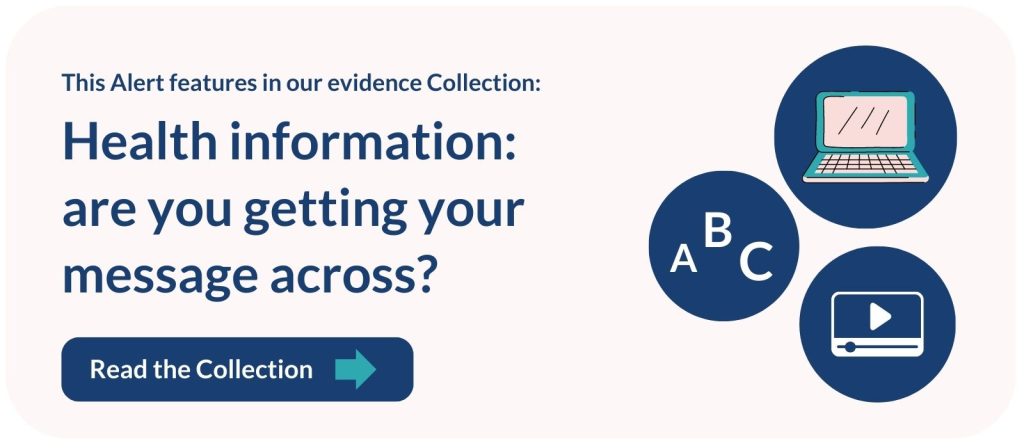This is a plain English summary of an original research article. The views expressed are those of the author(s) and reviewer(s) at the time of publication.
British-Pakistani women may need help to overcome cultural and language barriers if they are to fully take part in the NHS breast screening programme.
Breast screening uses an X-ray test called a mammogram to spot cancers when they are too small to see or feel. UK women aged 50 to 70 years receive an invitation for screening every three years. Since 2013, NICE guidelines have recommended that women at high risk of breast cancer should be identified. They may be offered more frequent screening and drug therapy to help prevent breast cancer. At present, just one in six women at high risk is identified.
Women of South Asian origin are less likely than any other ethnic group in the UK to attend breast cancer screening. Language barriers and cultural barriers are believed to affect this. Overall, this group of women have a lower risk of breast cancer than white women. But risk factors associated with lifestyle mean that risk of breast cancer is increasing in this population. As individuals, they should have access to the same risk assessment as other women in the UK.
British-Pakistani women were interviewed to identify ways to improve breast screening uptake. They were interested in finding out their individual risk of the disease, but had different preferences for how they would like to receive this information.
What’s the issue?
South Asian women are less likely than any other ethnic group in the UK to attend breast cancer screening. This is well-known but studies into barriers to accessing health care tend to look at these women as a single group. This means there is little research into the barriers that specifically affect women with Pakistani, Bangladeshi and Indian backgrounds.
Much of the previous research has failed to consider socioeconomic status or has required participants to speak English. This means the experiences of the most under-served individuals have not been recorded and considered.
The NHS screening programme now includes extra measures to prevent breast cancer in women at high risk. A fair system will allow all communities access to these extra measures. British-Pakistani women, and others of South Asian origin, may need help to have their risk assessed so that, where necessary, they can access more frequent screening and other interventions.
What’s new?
A study was based on interviews with 19 British-Pakistani women living in East Lancashire. The women all spoke Punjabi or Urdu as a first language, and interpreters were used for 14 of the interviews.
Analysis of these interviews revealed barriers to breast cancer screening that included:
- Reluctance to discuss breast health or expose breast tissue for screening with male health care professionals, alongside a lack of awareness among the women that screening actually takes place in an all-female environment.
- Use of family members as translators could mean some of the information given in an appointment did not get passed on, often due to embarrassment. Yet there was a lack of awareness translators could be provided by the NHS.
- No direct translation in Punjabi and Urdu for the terms ‘mammogram’ and ‘screening'.
- Lack of literacy meaning some women would not benefit from letters being translated into their own language, as they would not be able to read them.
A second analysis of the same interviews was carried out. It drew out the womens' attitudes to having their individual risk assessed. This means completing an online questionnaire about common risk factors such as lifestyle and age at their first period. Data from a mammogram is combined with these answers to calculate risk.
Researchers found that women would welcome information about their own risk of breast cancer as part of the screening process. But having to complete the online questionnaire was a barrier. The women varied in their preferences for how they would like to receive information from a risk assessment or breast screening. Some said they would prefer letters, some preferred a GP appointment to discuss results, and some wanted both.
Why is this important?
Previous research has tended to look at South Asian women as a single group. This has meant that barriers specific to different communities within the group have not been identified. Solutions to better serve each community have not been developed.
NICE recommends that women at high risk of breast cancer are offered more frequent screening and access to preventive treatment. But most women do not have their individual risk of breast cancer assessed.
Any developments to screening services need to be sensitive to the needs of women from ethnic minority communities, to ensure they have equal access to the programme. This research identified ways to improve uptake among the British-Pakistani population, which is the second largest ethnic minority group in the UK.
What’s next?
Recommendations from the researchers have ensured invitation letters sent out in the North West of England now state that breast screening will be performed by a female healthcare professional. Researchers strongly recommend this update is included in all breast screening letters sent out across England and the devolved nations. They suggest that GPs consider routinely discussing this at relevant appointments.
Making sure the screening service routinely collects data on ethnicity would mean that under-served communities could be identified. This would allow future researchers to target projects to identify barriers and improve uptake in those groups.
Collecting data on communications preference would also allow patients in this group autonomy and privacy when dealing with their health.
You may be interested to read
This research was based on two full papers. The first is: Woof V, and others. The introduction of risk stratified screening into the NHS breast screening programme: views from British-Pakistani women. BMC Cancer. 2020;20:425
The second is: Woof V, and others. Engagement barriers and service inequities in the NHS Breast Screening Programme: Views from British-Pakistani women. Journal of Medicine Screening. 2019. 0:0 p1-8.
This research is part of a feasibility study known as Breast Cancer Predict (BC-Predict). Information is available on the Manchester University NHS Foundation Trust website.
BC-Predict is part of a project called Predicting-Risk-Of-Cancer-At-Screening-2 (PROCAS-2). Information about PROCAS-2 is available on the Prevent Breast Cancer website.
Funding: This research was funded by a NIHR programme Grant for Applied Research. This research has also been supported by the NIHR Manchester Biomedical Research Centre.
Conflicts of Interest: The study authors declare no conflicts of interest.
Disclaimer: Summaries on NIHR Evidence are not a substitute for professional medical advice. They provide information about research which is funded or supported by the NIHR. Please note that the views expressed are those of the author(s) and reviewer(s) and not necessarily those of the NHS, the NIHR or the Department of Health and Social Care.

NIHR Evidence is covered by the creative commons, CC-BY licence. Written content and infographics may be freely reproduced provided that suitable acknowledgement is made. Note, this licence excludes comments and images made by third parties, audiovisual content, and linked content on other websites.
